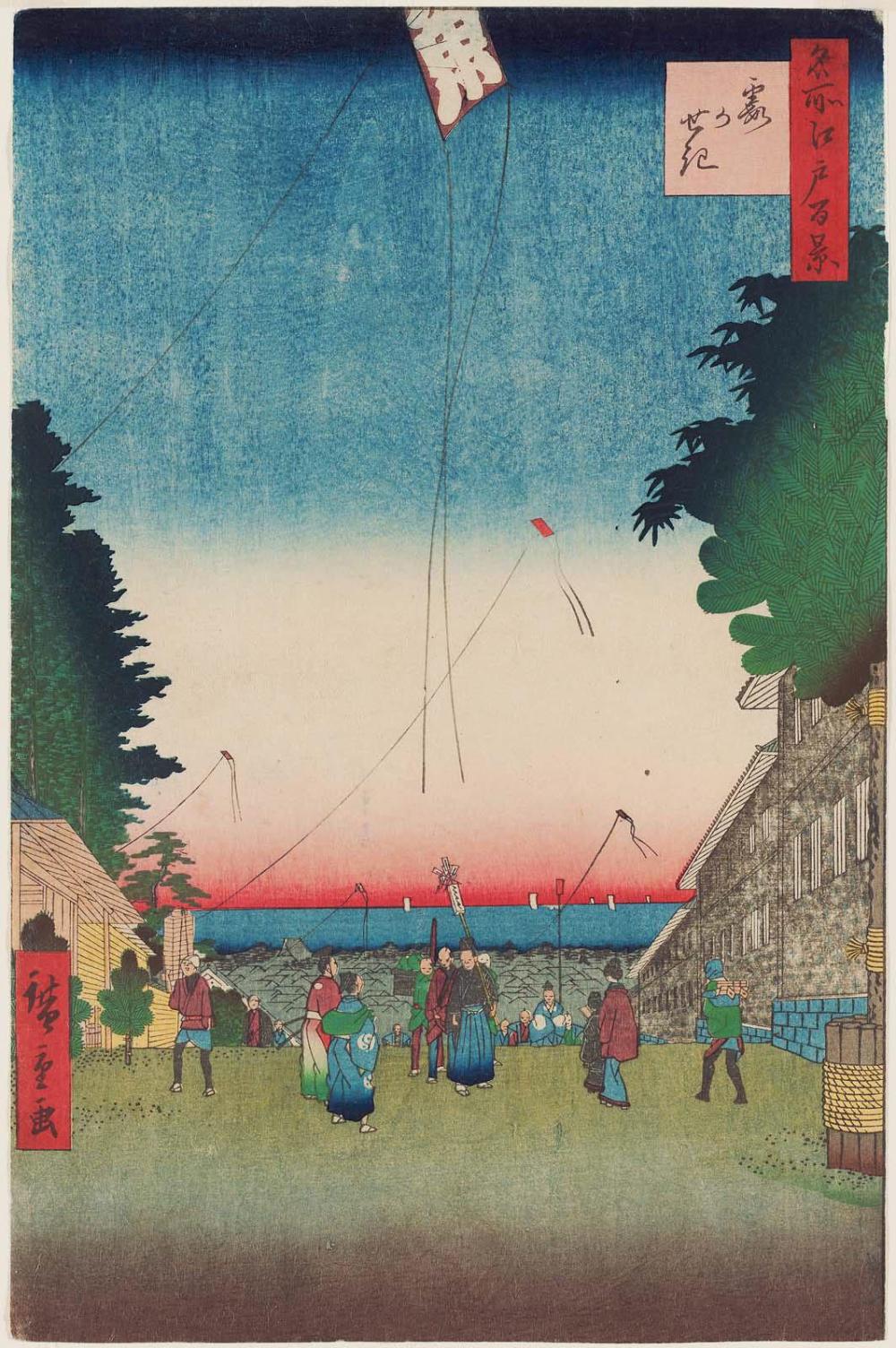Advanced Search 
「名所江戸百景 霞かせき」

Kasumigaseki (Kasumigaseki), from the series One Hundred Famous Views of Edo (Meisho Edo hyakkei)
「名所江戸百景 霞かせき」
Japanese
Edo period
1857 (Ansei 4), 1st month
Medium/Technique
Woodblock print (nishiki-e); ink and color on paper
Dimensions
Vertical ôban; 33.7 x 22.1 cm (13 1/4 x 8 11/16 in.)
Credit Line
William Sturgis Bigelow Collection
Accession Number11.16718
NOT ON VIEW
CollectionsAsia, Prints and Drawings
ClassificationsPrints
At New Year, the entrances of homes and businesses were decorated with kadomatsu, literally “pine trees at the gate.” In fact, the decorations were artificial trees constructed from real branches of pine, bamboo, and sometimes plum, the three plants that are still attractive even in winter. Sturdy bases made of logs roped together held the New Year trees upright.
Catalogue Raisonné
Sakai, Hiroshige Edo fûkei (1996), list #12.31, pls. 180, 181; Smith & Poster, 100 Views (1986), #2; Ukiyo-e shûka 14 (1981), Hiroshige list, p. 250, vertical ôban #62.29
DescriptionNo. 002 (spring section) on the title page for the series.
MFA impressions: 11.16718, 11.36876.3
MFA impressions: 11.16718, 11.36876.3
Signed
Hiroshige ga
広重画
広重画
Marks
Censor's seals: (aratame, Snake 1; cut off of this impression)
No blockcutter's mark
改印:(改、巳正)
彫師:なし
No blockcutter's mark
改印:(改、巳正)
彫師:なし
ProvenanceBy 1911, purchased by William Sturgis Bigelow (b. 1850 - d. 1926), Boston [see note 1]; 1911, gift of Bigelow to the MFA. (Accession Date: August 3, 1911)
NOTES:
[1] Much of Bigelow's collection of Asian art was formed during his residence in Japan between 1882 and 1889, although he also made acquisitions in Europe and the United States. Bigelow deposited many of these objects at the MFA in 1890 before donating them to the Museum's collection at later dates.
NOTES:
[1] Much of Bigelow's collection of Asian art was formed during his residence in Japan between 1882 and 1889, although he also made acquisitions in Europe and the United States. Bigelow deposited many of these objects at the MFA in 1890 before donating them to the Museum's collection at later dates.
